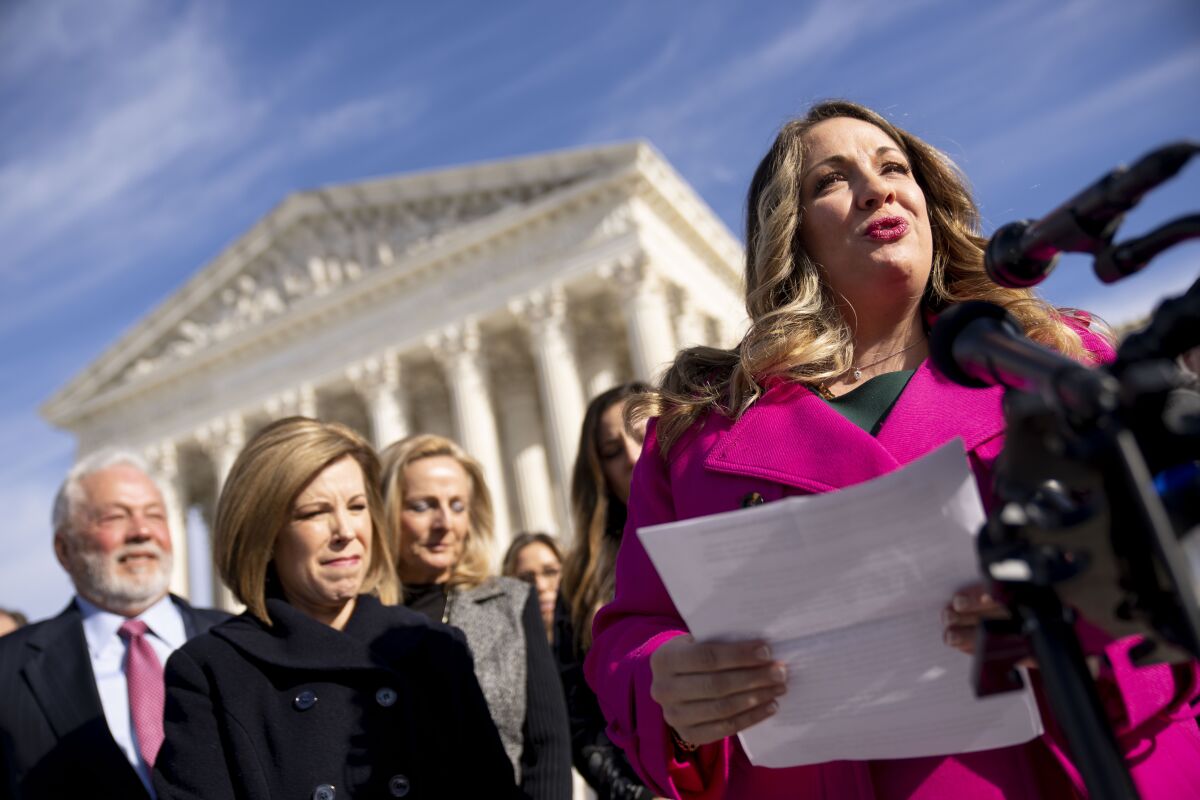
Lorie Smith, a US web designer is challenging anti-discrimination laws because she does not want to work on same-sex weddings. Read to know more.
Why is Lorie Smith challenging anti-discriminatory laws?
Four years ago, the US supreme court side-stepped the issue in a hearing involving a Chicago baker who refused to bake a custom wedding cake for same-sex couples. However, the question returned on Monday when business owners refused to use their talents for expressing messages that were against their beliefs. The Supreme Court of the United States (SCOTUS) is reviewing a new case. The matter is increasing tension between LGBTQ+ and the rights of business owners.
The state of Colorado, and 29 other states require a business to offer equal access regardless of religion, race, gender, and sexual orientation. Lorie Smith is a custom web designer opposed to same-sex marriages. She is pre-emptively suing Colorado as she believes the accommodations mandate violates her right to free speech. “I want to design for weddings that are consistent with my faith,” stated Smith.
More on the matter as the dilemma continues
Lorie Smith went to a federal court in Colorado, asking for a ruling that the state cannot enforce Colorado Anti-Discrimination Act (CADA). She is a Christian believing marriage is only between a man and a woman. Hence, argued that the anti-discrimination law is impending her first amendment, the right to exercise faith and free speech. CADA seeks to prevent discrimination against racial minorities and people of various sexual orientations. The law guarantees equal access to housing, public accommodation, and employment. This is regardless of a person’s race, creed, sexual orientation, disability, and sex.
“Congress shall make no law respecting an establishment of religion, or prohibiting the free exercise thereof; or abridging the freedom of speech. Or of the press; or the right of the people peaceably to assemble. And to petition the Government for a redress of grievances,” states the first amendment of the US constitution. A definite ruling is expected in the summer as the question brings up the question of drawing a line. “Last time around, we had cakes, as either expressing the maker’s point of view or the couple’s point of view. And that’s really at the heart of a lot of this,” stated Justice Neil Gorsuch, summarising the dilemma.
